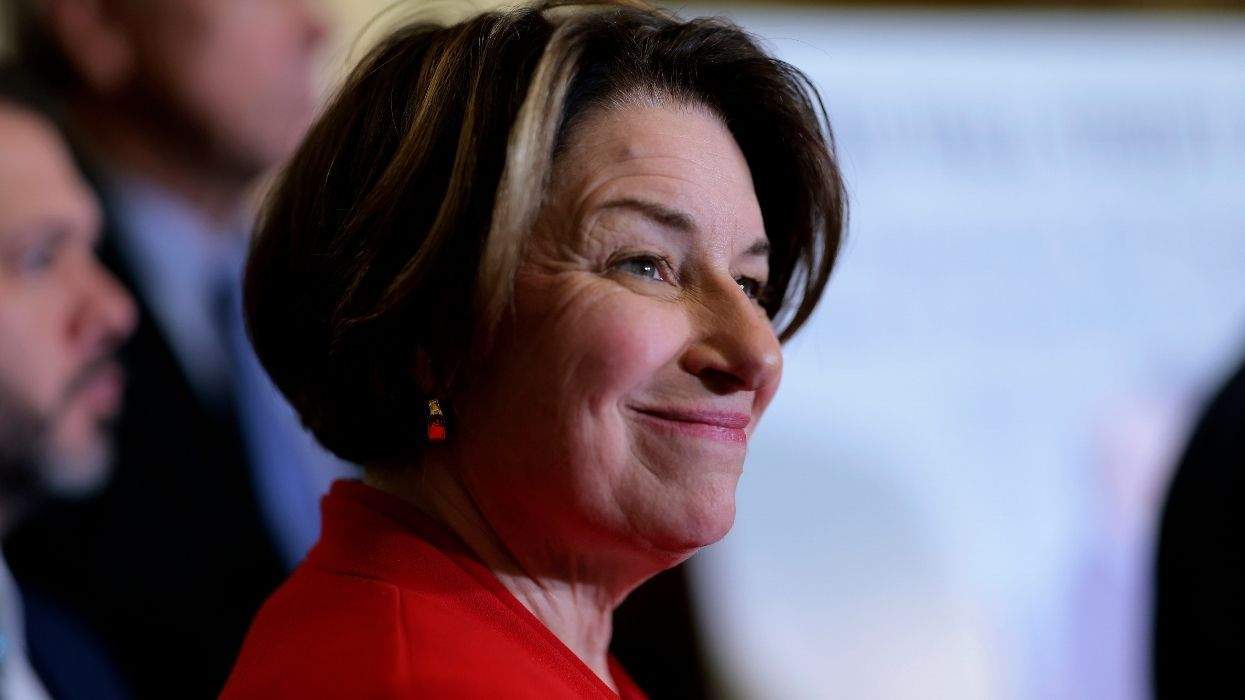No candidate has ever been attacked in a television ad for being antigay. But what such a commercial would look like isn't hard to imagine given the many examples from politics.
In 2012, Claire McCaskill approved a negative ad campaign that targeted Todd Akin, her Republican competitor for the 2012 Senate race in Missouri. Titled "Is Todd Akin Mainstream?" the ad raised three hot button issues -- Social Security, minimum wage, and student loans--and outlined how she said Akin's positions would be politically detrimental to these programs.
As a negative campaign, the ad was successful because it illustrated how Akin's stances on "the mainstream issues that matter" differed from the "majority of Missouri" through bullet points, audio and video recordings, and quotations. LGBT activists seem to agree that if an antigay candidate were targeted now, it would likely be with a campaign like this one that tries to cast the opponent as an extremist.
In the video above, The Advocate used the Akin campaign as a template and filled in the content using one of the most antigay candidates in the current playing field -- E.W. Jackson, who is running for lieutenant governor in Virginia. It's designed to help fill in the blanks on what a groundbreaking attack ad might look like.
(RELATED: The Unresolved Politics of Attack Ads on Antigay Candidates)
Less than a minute in length, the Akin ad used his own recorded words against him, painting him as a candidate that is not only extreme but also out of touch with the day-to-day realities of voters, which is the furthest thing a politician wants to be. Successful candidates strive to represent their voters, and that necessitates a keen understanding of their wants, needs, and values, which are subject to change over time. The Advocate's imaginary ad employs the same tactic by using Jackson's own words.
In Virginia, 56% of voters are in favor of marriage equality, according to a recent poll by The Washington Post. Yet Jackson is unabashedly homophobic and has compared gay people to perverts, pedophiles, and an "abomination in the sight of God." A Baptist minister, Jackson espouses a narrow view of religion, which he has used to justify his outrageous claims against gay Americans throughout his run for public office.
Larry Sabato, political scientist and director of the University of Virginia's Center for Politics, argues that a negative ad campaign might now be plausible somewhere in the United States, but location and timing would be essential in its planning and execution.
"The question is, what are the competitive Purple states?" said Sabato. "There, it depends on the year and the race. In general, the larger the turnout -- the presidential years, in other words -- the more effective such ads can be, because in heavy turnout years, a good proportion of the 18-30 crowd shows up, and they are overwhelmingly pro-gay rights. The lower the turnout--that is, midterm years and off-off years, such as 2013 -- the less likely pro-LGBT TV ads would be to work, because the electorates tend to be older, whiter, and more conservative."
The Advocate's example ad focuses exclusively on LGBT equality, although according to gay rights activists and to Sabato, a more likely option is one that packages gay issues with other points that portray the candidate as extreme.
"It could connect the dots of all the kooky or controversial statements made by Jackson and his ticket-mates -- from gays to yoga to Planned Parenthood and God knows what else," said Sabato. "I could see that working, if only to pump up Democratic turnout, which was miserable four years ago."
Watch the video above and let us know in the comments whether it's ahead of its time. Then check out the Todd Akin ad on which it is based below.















Charlie Kirk DID say stoning gay people was the 'perfect law' — and these other heinous quotes
These are some of his worst comments about LGBTQ+ people made by Charlie Kirk.